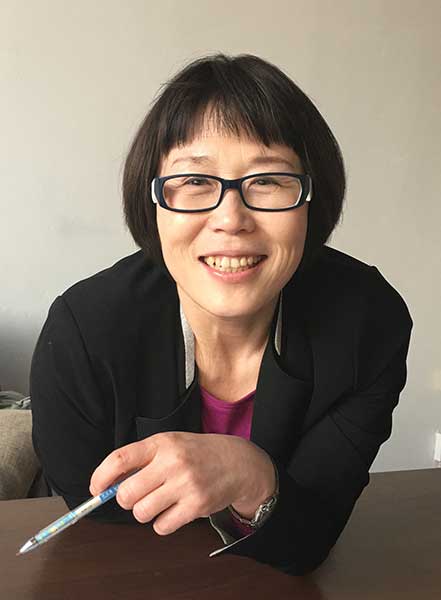 |
|
Wang Liying, founder of Mingzhi Zhi Jia.[Photo provided to China Daily] |
In China, the scale of autism is huge. According to a 2014 report by the Chinese Society of Education, China's largest academic organization for the sector, it is estimated that the country has more than 10 million autistic children, with roughly one-fifth under the age of 14. Public-funded rehabilitation facilities are not able to meet the demand.
According to the China Disabled Person's Federation, a government association, some 135 public-funded institutes for autistic children took in around 55,000 patients from 2011 to 2014.
Private-owned rehabilitation units collaborating with the federation now exceed 1,000, Jia Meixiang, an autism expert from Peking University Sixth Hospital, recently told Beijing-based Oriental Outlook magazine.
Usually, such facilities receive government funds for their programs.
Last year, the Jilin City Disabled Person's Federation helped about 140 autistic children younger than 6.
"We helped these children by giving 10,000 yuan ($1,600) for each. We usually give the money to rehab centers," says Yang Lingyun, deputy director of the organization.
Mingzhi Zhi Jia got government subsidies last year with 54 students meeting the criteria meaning the center received 540,000 yuan from the government.
Wang has poured about 16 million yuan into the institution's daily requirements and maintenance in the past seven years.
"There are some differences between public-funded rehabilitation facilities and private ones like ours in terms of accessibility to resources despite the two sectors being equal in central government policy," Wang says of the ease with which she thinks public facilities work as opposed to private.
The underfunding issue was brought into focus by a National People's Congress deputy from Jilin during the two sessions in Beijing in early March. In his motion submitted at the top annual political meetings, Guo Naishuo asked for enhanced financial support from the government for privately owned autism rehabilitation units so they may offer better training and education to children.
"The government should take out a large amount of money for school-age and autistic adults," Guo said in his motion.
Taking challenges head on in 2015, Wang set up a new company that provides data for agricultural use to cover the costs of her institution. She has also employed 11 students, like Sha Lin, who have finished their therapies and are being professional trained for jobs now.
"They have taken up cleaning jobs, packing parcels and serving at an in-house cafe. They will likely do some sales work in the future," she says. "I strive to make more money to help these kids, and in turn, they help me."